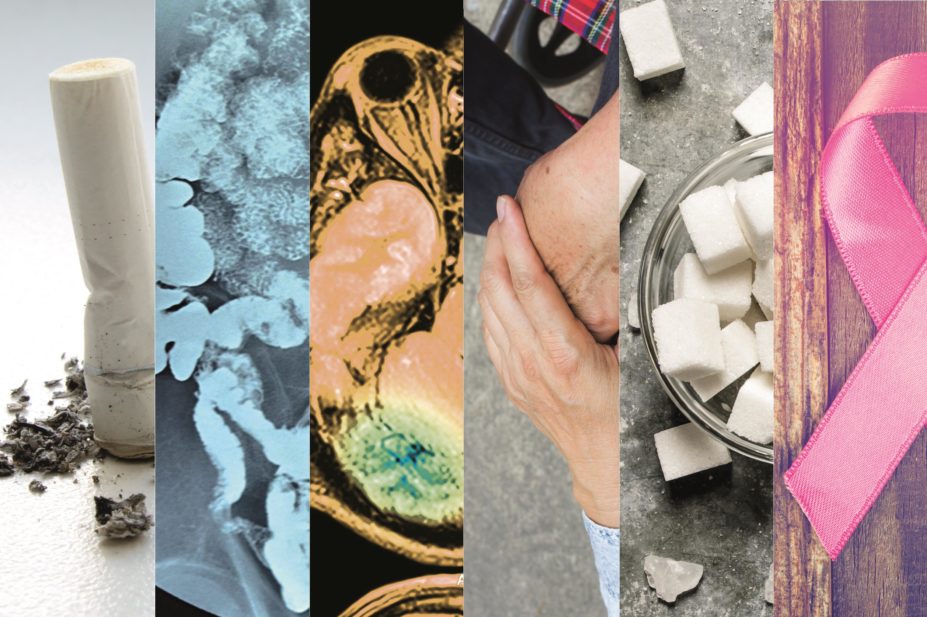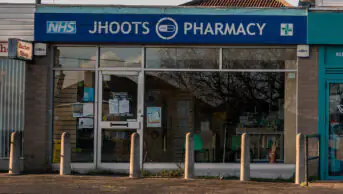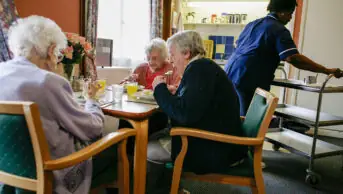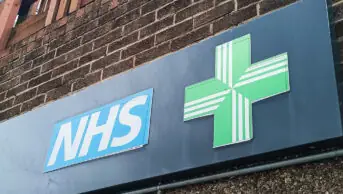
MAG / Shutterstock.com
Awareness days – or weeks, or months – are dates usually set by charities, organisations or the government to highlight a particular public health or ethical cause. If you wanted to, you could pick one to promote every week in your pharmacy, but it pays to be discerning in order to avoid overloading your customers with information and diluting the message that you are a front line health expert. However, choosing which events to promote and which to ignore can present a challenge.
Emma Charlesworth, communications manager at buying group Numark, suggests supporting awareness days that have “a strong and complementary link to services and products supplied from your pharmacy”. These can be linked to public health issues such as smoking, and conditions like diabetes and blood pressure, but she stresses that it is important that you “select those days where your pharmacy can add value to the general public and provide a definitive role in advising them about that particular condition”, she says.
Choosing the right events
Considering the local demographics in a pharmacy’s catchment area can help determine the health needs of the local community, and thus choose appropriate awareness events to promote. A useful resource is the Public Health England website, which provides data on geographical health issues.
Bernadette Brown, owner of Cadham pharmacy in Fife and clinical independent prescribing pharmacist, says that in her area, the main focus is on health awareness and the public health agenda for smoking cessation. “We promote No Smoking Day [on 9 March], for example,” she says. “However, we try to look at every customer as a whole person so we’ve gone on to develop other services that are about more than simply focusing on something for a week or a month.”
For instance, Brown runs a healthy heart scheme with diagnostics that “help us check people holistically”. She has trained her counter staff to do health heart measurements, and then she talks to customers at the end of the consultation about risk. Through this, they have identified people with diabetes or high blood pressure and cholesterol, and encouraged others to quit smoking.
Unfortunately, changes to public health funding have made running awareness campaigns more complicated. Nigel Hughes, public health specialist at Community Pharmacy West Yorkshire (CPWY), says: “Health promotion centres have been cut back or closed completely, so there are fewer people with expertise to support pharmacy in promoting these kinds of campaigns”. Because of that, CPWY has gone forward on a regional level with the bigger campaigns: ‘No Smoking’, ‘Dry January’, and ‘Be Clear On Cancer’, and this April we will be developing more of a regional approach (with colleagues at NHS England) to get three campaigns a year on those three topics organised across West Yorkshire.
Marketing
One thing to remember if you are undertaking an event is that marketing is vital to ensure success. “The more noise you make, the more people will hear and the more custom you will generate,” says Charlesworth, “but reaching the right audience is more important than making a big splash.”
Brown raises awareness of No Smoking Day via the pharmacy’s Facebook page, as well as ongoing promotions within the pharmacy. She adds: “It’s powerful if counter staff remind people that they can do a 12-week course with us. Recently we achieved the top quit rate for Fife, so we also put an advert on the local radio trying to get that message out, as well as on our website. This year I want to develop an app for our pharmacy which will start with stop smoking, then diabetes and the healthy heart check, as another way to engage customers.”
Measuring success
So how can you evaluate whether your campaign has been successful? Charlesworth says you need to “consider carefully your cost versus return model. Success could be financial, it may be based on the amount of customers you attract or it could be a measure of linked over-the-counter (OTC) product sales or other opportunities — maybe links with other local healthcare professionals or organisations that can help you in the future. Whatever success looks like, it is vital that you track and measure the success of your event and be clear from the outset what you want to achieve. If it isn’t profitable for you then you’ll need to make changes for future activities.”
However, Hughes says taking this measurement may not be so straightforward. “At CPWY, we simply used to record how many pharmacies put up a display, but now we’ve got to get more effective measuring and that’s difficult to do, especially with funding constraints. It needs a varied approach, and we want to encourage pharmacies to join their local networks and see each campaign as part of a bigger programme. For example, with dementia, we have dementia champions getting pharmacists to submit action plans to their local Dementia Alliance about what their strategies are.”
Proving profitability
If generating extra revenue is part of your plan, Charlesworth says signposting customers to relevant products and services is vital: “For example, with diabetes, it could be linked to products that support diabetic care such as appropriate foot care, dietary, nutrition and services like blood glucose testing.”
But Mark Robinson, community pharmacy lead for the NHS Alliance, warns that “as long as we focus on money as the end game, we’re in danger of stasis as a profession”.
He adds: “The NHS is facing unprecedented challenges and while, at some level, they may seem like trite public relations hooks, national awareness drives are a challenge we should be rising to. Let’s be visible, get it right with a firm focus on our patients and communities and collaborating with our primary care colleagues, and the money will follow.”
Brown agrees that visibility should be a core driver. “Pharmacy has to be serious about doing things right, so that we can get the public to believe in us,” she says. “No doubt it’s difficult to set these things up on occasion — they can cost money, and you also might need a private consultation room — but the public will vote with their feet if you provide extra special care, even if you think there is a barrier to providing it in the first place because of money.”
She considers any investment she has made to be worthwhile and says that footfall has improved. “Customer feedback has also been great,” she adds, “and it’s often the ease of access that people are commenting on. This helps us build the trust of our community. Getting your pharmacy a good clinical name improves the number of prescriptions coming in but also makes you more than just a supplier of prescriptions.”
A joined-up message
There is also the opportunity for pharmacists to work with other healthcare providers and organisations to provide a more cohesive message. “For example, last year Wakefield had a provider team called SWYFT (South West Yorkshire Foundation Trust) which provided a community service with targets around winter such as flu and antibiotic resistance advice,” says Hughes.
“It promoted a ‘stay well this winter and treat yourself better’ programme with a display to take out to pharmacies, encouraging local charities to put information in the packs, and building relationships for the future with a prelaunch event explaining how pharmacy could be an effective partner,” he explains. “One of the outcomes was that charity Age UK began telling people they could go to the pharmacy for advice about coughs, colds and winter self care. It took a great deal of organisation and meant that a lot of people had to say “yes” to getting involved, but the evaluation was good — so much so that pharmacies were asking SWYFT if it is doing it again this winter.”
Charlesworth points out the importance of building stakeholder relationships with local health communities, especially GPs. “Contact your local practices and talk to them about your plans. Involving them in the decision process will mean they will be more inclined to work with you to make your event a success,” she says. “Establish how you can collaborate to provide the best outcomes for your patients. Discuss with them how they would like patient referrals to be made and also any other areas which they feel you may be able to support them with. If you engage stakeholders early on, they are more likely to support you and your service and some may even refer patients on.”
Charlesworth also says you should consider your competitors. “What are they doing and could you — or should you — compete with them? What could you offer that they don’t and will it bring new people into your pharmacy?”
A well funded, co-ordinated approach could have a significant effect on public health in your area, according to Robinson. “Research shows that a deep understanding of the causes of negative health behaviours and a continual nudge effect within the community is far more powerful than centrally orchestrated push campaigns,” he says.
In the end, the reason to do any of this is for the patient, but it takes input from all staff to make the most of them. Hughes says: “Making every contact count is really important, and successful awareness campaigns need the whole community pharmacy team behind them to make them work. If we can empower our counter staff — or health champions, as well call them — with the confidence and skills they can be absolutely brilliant at implementing these, but we need to support them to reach their potential.”
Some relevant awareness days for pharmacy
March: Ovarian Cancer and Prostate Cancer Awareness month
9 March: National No Smoking day
April: Bowel Cancer Awareness month
May: Action on Stroke month
15–21 May: Dementia Awareness week
16–22 May: Mental Health Awareness week
6–12 June: Carers week
12–18 June: Diabetes Awareness week
September: Vascular Disease Awareness month
October: Breast Cancer Awareness month
November: Lung Cancer Awareness month
NHS Choices supports and promotes awareness days on its website and via its social media channels. You can search for more awareness days and campaigns at:
Reading this article counts towards your CPD
You can use the following forms to record your learning and action points from this article from Pharmaceutical Journal Publications.
Your CPD module results are stored against your account here at The Pharmaceutical Journal. You must be registered and logged into the site to do this. To review your module results, go to the ‘My Account’ tab and then ‘My CPD’.
Any training, learning or development activities that you undertake for CPD can also be recorded as evidence as part of your RPS Faculty practice-based portfolio when preparing for Faculty membership. To start your RPS Faculty journey today, access the portfolio and tools at www.rpharms.com/Faculty
If your learning was planned in advance, please click:
If your learning was spontaneous, please click:


